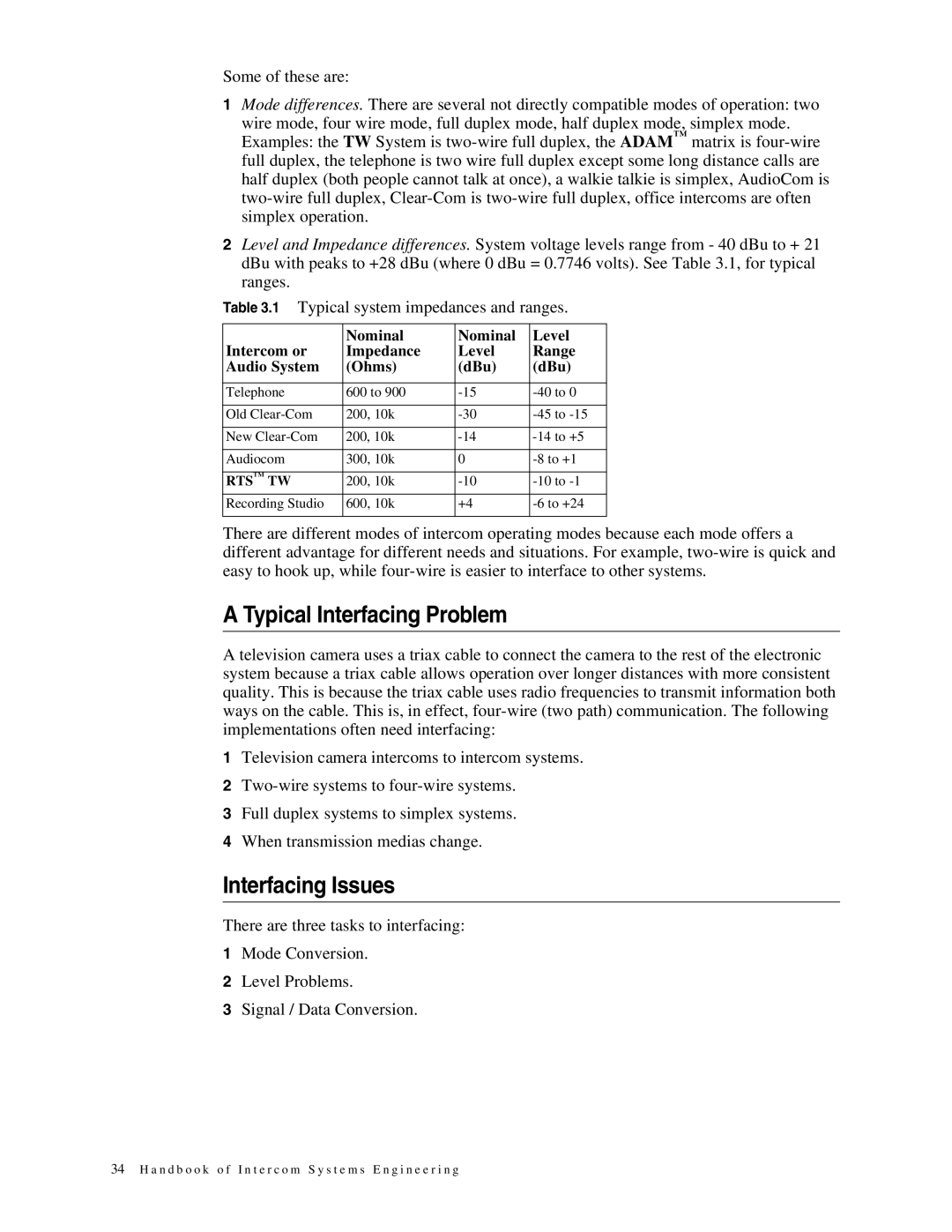
Some of these are:
1Mode differences. There are several not directly compatible modes of operation: two
wire mode, four wire mode, full duplex mode, half duplex mode, simplex mode. Examples: the TW System is
2Level and Impedance differences. System voltage levels range from - 40 dBu to + 21 dBu with peaks to +28 dBu (where 0 dBu = 0.7746 volts). See Table 3.1, for typical ranges.
Table 3.1 Typical system impedances and ranges.
| Nominal | Nominal | Level |
Intercom or | Impedance | Level | Range |
Audio System | (Ohms) | (dBu) | (dBu) |
|
|
|
|
Telephone | 600 to 900 | ||
|
|
|
|
Old | 200, 10k | ||
|
|
|
|
New | 200, 10k | ||
|
|
|
|
Audiocom | 300, 10k | 0 | |
|
|
|
|
RTS™ TW | 200, 10k | ||
Recording Studio | 600, 10k | +4 | |
|
|
|
|
There are different modes of intercom operating modes because each mode offers a different advantage for different needs and situations. For example,
A Typical Interfacing Problem
A television camera uses a triax cable to connect the camera to the rest of the electronic system because a triax cable allows operation over longer distances with more consistent quality. This is because the triax cable uses radio frequencies to transmit information both ways on the cable. This is, in effect,
1Television camera intercoms to intercom systems.
2
3Full duplex systems to simplex systems.
4When transmission medias change.
Interfacing Issues
There are three tasks to interfacing:
1Mode Conversion.
2Level Problems.
3Signal / Data Conversion.
34 H a n d b o o k o f I n t e r c o m S y s t e m s E n g i n e e r i n g
